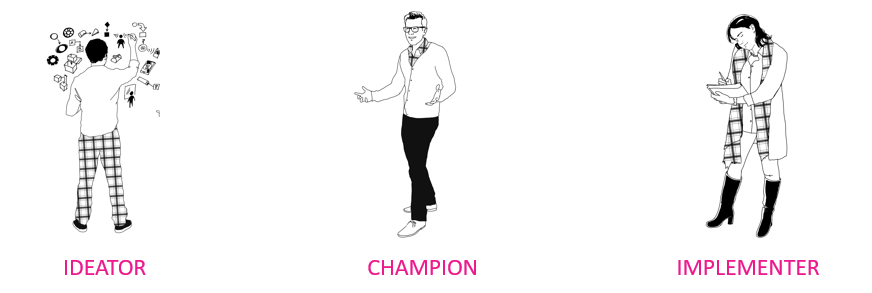
Innovative Work Behavior (IWB): The Human Engine Behind Ai & Digital Transformation
Insights - 09.10.2025
By Jef Vandenberghe | Published on Innduce.me
In today’s era of digital transformation, artificial intelligence (Ai) is redefining how organizations operate, compete, and innovate. In the midst of the race toward automation, data analytics, and machine learning, one crucial factor is often overlooked: the human element.
While algorithms process information, it is people who determine how Ai is understood, integrated, and advanced within organizations. At the heart of this human-driven innovation lies a concept known as Innovative Work Behavior (IWB).
What Is Innovative Work Behavior (IWB)?
Innovative Work Behavior refers to the intentional actions employees take to generate, promote, and implement new ideas that benefit their organization. According to Janssen (2000), IWB unfolds in three interrelated stages:
- Idea Generation – Recognizing opportunities or creating novel solutions to problems.
- Idea Promotion – Gaining support and securing resources to move ideas forward.
- Idea Realization – Transforming ideas into tangible innovations in products, processes, or workflows.
Recent empirical research by Zhang et al. (2025) indicates that Ai usage is positively associated with innovative work behavior, primarily through the mediating role of self-efficacy—that is, employees’ confidence in their own abilities to use Ai effectively.

Why IWB Matters for Ai Transformation
Ai adoption is not a one-time technology upgrade—it’s a continuous learning process that requires ongoing experimentation and adaptation. Employees who demonstrate strong IWB are pivotal in this process because they:
- Experiment with Ai tools instead of resisting them.
- Identify creative applications of Ai in processes, services, and business models.
- Act as change ambassadors, fostering support among peers and leaders.
- Enable organizational learning, helping the company remain agile long after initial Ai deployment.
Without such human initiative, even the most sophisticated Ai systems can stagnate, delivering far less value than anticipated.
The Impact of Fostering IWB
Organizations that actively cultivate innovative work behavior (IWB) report tangible benefits, including:
- Accelerated and more successful Ai adoption
- Increased innovation output and productivity
- Higher employee engagement and satisfaction
- A sustainable competitive advantage through continuous improvement
In essence, technology may catalyze change, but it is human innovative behavior that ensures lasting transformation.
Key Takeaway
As Ai continues to reshape industries, forward-thinking organizations must recognize that their most valuable innovation asset isn’t code or data—it’s people. Cultivating an environment where IWB can thrive bridges the gap between technological capability and organizational success.
References
- Janssen, O. (2000). Job demands, perceptions of effort–reward fairness and innovative work behavior. Journal of Occupational and Organizational Psychology, 73(3), 287–302.
- Zhang, Y., Li, M., & Chen, J. (2025). Artificial Intelligence and Innovative Work Behavior: The Mediating Role of Self-Efficacy. Journal of Applied Psychology and Technology, 40(2), 112–129.




